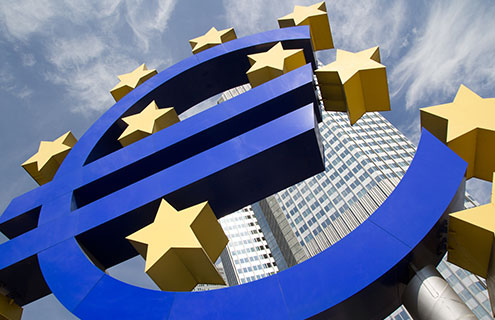FIA offers EU guidance on third-country CCP supervision
08 September 2017 Brussels
 Image: Shutterstock
Image: Shutterstock
The Futures Industry Association (FIA) has waded into the debate over the European Commission’s proposal for a two-tier system for regulating EU and non-EU central counterparties (CCPs).
FIA set out 23 recommendations that promise to enhance the changes for CCP equivalence and recognition process under the European Market Infrastructure Regulation (EMIR) and allow for enhanced third-country CCP supervision without distorting markets.
The European Commission’s proposal for more robust supervision of CCPs was issued in response to a lack of regulatory consistency, their increasing importance in financial services, and the expectation that the UK’s withdrawal from the EU will have a significant impact on the regulation and supervision of clearing in Europe.
According to FIA, the European Securities and Markets Authority (ESMA) should run point on any regulation of third-country CCP rules, with the European Central Bank and non-eurozone EU central banks filtering their process for granting recognition and oversight through ESMA.
This would avoid duplicative or conflicting requirements being created by those central banks—or those same central banks becoming quasi-regulators in addition to ESMA.
At the same time, ESMA should jointly supervise the most systemic of third-country CCPs in coordination and collaboration with the national competent authorities in those jurisdictions.
FIA also encouraged greater transparency of ESMA’s equivalence and recognition process by having the authority engage in public consultations before passing judgement on a CCP or CCP service.
ESMA’s annual report to the commission on third-country regulatory developments should also become publicly available.
With regards to forced relocation for access to derivatives clearing, FIA suggested that systemic third-country CCP services should be subject to the application of EMIR standards and to direct supervision by ESMA.
ESMA should have the ability to grant comparable compliance, rather than force the relocation of such activities deemed to be of substantial systemic importance for EU financial stability.
In terms of recognising risk within a CCP, FIA proposed that the current rules be clarified to recognise that not all CCP services or products within a single CCP legal entity will be systemically relevant to the EU or have the same impact on financial stability in the EU.
“We support the European Commission’s commitment to ensuring third-country CCPs are appropriately supervised as part of a well-regulated central clearing system,” said Walt Lukken, president and CEO of FIA.
“However, forced relocation of clearing could distort markets, fragment liquidity, and raise costs for market participants globally. The European Commission can better achieve the goal of improving the oversight of third-country CCPs by updating its proven equivalence regime and enhancing the supervision for CCPs that are systemically important in the EU.”
FIA set out 23 recommendations that promise to enhance the changes for CCP equivalence and recognition process under the European Market Infrastructure Regulation (EMIR) and allow for enhanced third-country CCP supervision without distorting markets.
The European Commission’s proposal for more robust supervision of CCPs was issued in response to a lack of regulatory consistency, their increasing importance in financial services, and the expectation that the UK’s withdrawal from the EU will have a significant impact on the regulation and supervision of clearing in Europe.
According to FIA, the European Securities and Markets Authority (ESMA) should run point on any regulation of third-country CCP rules, with the European Central Bank and non-eurozone EU central banks filtering their process for granting recognition and oversight through ESMA.
This would avoid duplicative or conflicting requirements being created by those central banks—or those same central banks becoming quasi-regulators in addition to ESMA.
At the same time, ESMA should jointly supervise the most systemic of third-country CCPs in coordination and collaboration with the national competent authorities in those jurisdictions.
FIA also encouraged greater transparency of ESMA’s equivalence and recognition process by having the authority engage in public consultations before passing judgement on a CCP or CCP service.
ESMA’s annual report to the commission on third-country regulatory developments should also become publicly available.
With regards to forced relocation for access to derivatives clearing, FIA suggested that systemic third-country CCP services should be subject to the application of EMIR standards and to direct supervision by ESMA.
ESMA should have the ability to grant comparable compliance, rather than force the relocation of such activities deemed to be of substantial systemic importance for EU financial stability.
In terms of recognising risk within a CCP, FIA proposed that the current rules be clarified to recognise that not all CCP services or products within a single CCP legal entity will be systemically relevant to the EU or have the same impact on financial stability in the EU.
“We support the European Commission’s commitment to ensuring third-country CCPs are appropriately supervised as part of a well-regulated central clearing system,” said Walt Lukken, president and CEO of FIA.
“However, forced relocation of clearing could distort markets, fragment liquidity, and raise costs for market participants globally. The European Commission can better achieve the goal of improving the oversight of third-country CCPs by updating its proven equivalence regime and enhancing the supervision for CCPs that are systemically important in the EU.”
NO FEE, NO RISK
100% ON RETURNS If you invest in only one securities finance news source this year, make sure it is your free subscription to Securities Finance Times
100% ON RETURNS If you invest in only one securities finance news source this year, make sure it is your free subscription to Securities Finance Times



